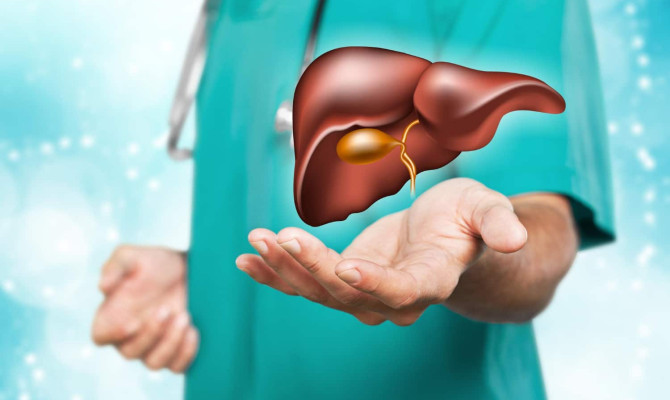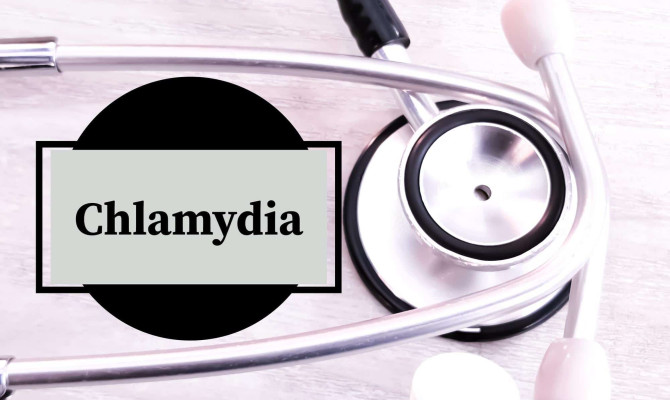Amnesia : A General Overview

- Amnesia
- 14 Aug 2023
Overview
What is Amnesia ?
Amnesia can be described as the inability to recall information from one’s memory. Even though it is a common theme in movies and books, it is a fairly uncommon illness.
The word “Amnesia” originated from the Greek, a- (without) – mnesis (memory). 1What is amnesia | Researched based study from Nih.gov It might just last a short while or last longer due to a psychiatric cause. 2What is amnesia | Researched based study from Acadmic.oup.com Damage to brain regions essential for processing memories can result in memory loss. It most frequently affects a person in patches, with certain experiences being lost. Amnesia is not the same as becoming slightly forgetful due to aging. It causes a person to frequently forget major occasions, family members or events in their lives, and critical information they have learned. Those who have amnesia frequently still recognize who they are and may have the ability to function.

Classification
Types of amnesia
Amnesia comes in a variety of forms, including the following:
- Retrograde amnesia – occurs when a person is unable to recollect memories that were before the incident.
- Anterograde kind – occurs when a person is unable to create new memories following the incident that created the amnesia. For instance, following a drink. Retrograde amnesia is far less frequent than anterograde. 3Types of amnesia | Researched based study from Nih.gov
- Post-traumatic type (PTA) – is a common side effect of traumatic brain injury. After a time of unconsciousness, PTA could happen. The duration of PTA may be a good indicator of the extent of the brain damage.
- Transient global amnesia (TGA) – is a condition that is not well understood. It might cause disorientation or irritation that occurs and disappears over a period. They may undergo loss of memory in the hours preceding the attack and will most likely have no lasting remembrance of the encounter. Middle-aged and older individuals experience it more frequently.
- Infantile amnesia – a term used to describe a person’s inability to recollect memories of experiences from their early years. In most cases, the first three to five years of life are forgotten. This widespread occurrence is known as infantile or childhood amnesia.
- Dissociative type – can result from a traumatic or stressful incident, including being in battle or being the victim of an offense. He or she erases from recollection both the painful event and any personal details.
- Drug-induced – When you use specific drugs, you may experience this kind of memory loss. For example, benzodiazepines, sedatives, and general anesthetics like phenobarbital, etc. Older folks who could be taking various drugs might see it more than others.
Causes
Causes of amnesia
Although some people have been diagnosed with amnesia at birth or infancy, the vast majority of instances represent adult-acquired memory loss. Amnesia may result from the following factors:
- Traumatic head injury – caused by a car accident, sports injury, piercing object like a bullet, etc.
- Head injuries – that cause concussions frequently cause memory loss for minutes, hours, or days before and after the accident.
- Tumors – in memory-controlling parts of the brain.
- Neurosurgery – which is used to treat severe epilepsy.
- Anoxia – Heart attacks, breathing problems, or poisoning from carbon monoxide could all develop into anoxia, where low oxygen levels are impacting the entire brain, resulting in memory loss.
- Hippocampus damage – Hippocampus is a region of the brain involved in memory. These cells are among the most energy-hungry and vulnerable in the brain. Anoxia and other dangers like poisons can most easily disrupt them. 4Causes | Researched based study from Pnas.org
- Infections of the brain – including HIV/AIDS, encephalitis, Lyme disease, and syphilis.
- Short-term alcohol usage – can result in a blackout. This is a type of temporary memory impairment.
- Long-term alcohol abuse causes the body to lack sufficient vitamin B-1, often known as thiamin. Wernicke-Korsakoff syndrome is the term used to describe this condition.
- Nutritional deficiencies, such as a lack of thiamine (vitamin B1) or cyanocobalamin (vitamin B12).
- Alzheimer’s disease: This condition involves the degradation of nerve tissue, which impairs memory.
- Dementia – It is believed that the age of a memory influences where it is located in the brain. Individuals who have dementia start losing more recent memories first and retain older memories for a longer period.
- Stress or trauma – Extreme stress or trauma can potentially result in dissociative amnesia. When a person has this disease, their mind rejects anything too difficult for them to process.
- Electro-convulsive therapy (ECT) – Retrograde amnesia may occur in the weeks or months before electroconvulsive therapy (ECT) if a patient is being treated for depression or another disorder. They might also develop anterograde amnesia, which typically goes away 4 weeks 5Causes | Researched based study from Plos.org after the treatment. Memory can be impacted by any brain disorder or injury.
- Certain medications – Drug-induced amnesia often lasts just a short time. It is particularly noticeable in elderly people who may be on multiple drugs. Sedatives such as zolpidem, benzodiazepines such as alprazolam, and general anesthetic medications such as phenobarbital sodium and phenobarbital, as well as date rape drugs such as flunitrazepam and ketamine.
- Additional factors – such as thyroid problems, radiation, and excessive corticosteroid levels.
Risk
Risk factors
If a person goes through any of the following, their risk of acquiring amnesia may rise:
- A concussion-related head injury.
- Neurosurgery.
- Seizures or stroke.
- Cardiac arrest, the longer the cardiac arrest episode, the greater the chance of memory loss. 6Risk factors | Researched based study from Nih.gov
- Drinking too much alcohol.
- Elevated blood pressure.
- Emotional stress resulting from trauma or abuse.
- Blood cholesterol levels that are high.
- A previous history of migraines.
Symptoms
Symptoms of amnesia
- Memory loss is the primary symptom.
- Difficulty picking up new information. (Amnesia retrograde)
- Difficulty recalling recent information, events, or locations. (Amnesia retrograde)
- Short-term memory loss – It’s more likely that recent memories will be forgotten. More distant or firmly ingrained memories might be preserved.
- Fabricated or entirely made-up false recollections that are not aimed at misleading people. 7Symptoms of amnesia | Researched based study from Nih.gov
- Feeling confused or lost.
- Having trouble remembering specifics about events, places, or historical facts.
- Losing some or all of one’s recollection
Complications
Complications
- A lower quality of life.
- Doing everyday tasks and engaging in social activities may be difficult.
- Memory loss is sometimes irrecoverable.
- Individuals who have severe memory loss may require 24-hour supervision.
Prevention
Preventing amnesia
These healthy behaviors can reduce a person’s chance of stroke, dementia, head injuries, blackouts, and other potential memory loss-causing conditions:
- Wear protective headgear while engaging in activities that could cause a brain injury, such as cycling, skiing, boxing, etc.
- Always fasten the seatbelt when driving a car, and abstain from using drugs or alcohol when operating a motor vehicle.
- If a person exhibits symptoms like a terrible headache, numbness on one side of the body, or immobility on any side of the body, get emergency medical attention.
- Refrain from binge drinking or abusing drugs.
- Quit smoking as it is proven to raise the chance of mental deterioration.
- Maintain a healthy level of mental activity, such as traveling, reading, and playing activities that need mental involvement.
- Maintain relationships with loved ones. Social health is crucial.
- Drink enough water. Even slight dehydration, particularly in women, has been shown to harm brain function.
- Consume a nutritious, well-balanced diet, low in trans fats to help avoid heart disease, which can exacerbate memory issues.
- Get regular exercise. Strength training and cardiovascular exercise might both be advantageous.
- Get adequate sleep. Cure sleep apnea and sleeplessness if needed.
- Reduce stress and manage depression and anxiety with therapy.
- Getting eyes checked every year after 65 years of age to help reduce falls.
- Maintain normal blood pressure.
- Manage blood sugar levels.
- Keep a healthy weight.
Diagnosis
Diagnosis
To diagnose amnesia, a thorough evaluation is required. The following actions may be taken during diagnosis:
Medical history
- They will begin by questioning about the memory loss along with any additional symptoms experienced like confusion, personality changes, etc.
- Since the affected individual may not be able to recall the responses to their questions, doctors may ask a family member or caretaker to assist them with their examination.
- May ask questions related to a history of addiction to drugs or alcohol.
- A history of depression, cancer, migraines, or seizures.
Family history
- To find out if the neurological diseases run in the affected member’s family.
Physical examination
- Could involve a neurological examination to assess balance, sensory functions, and reflexes.
Mental health evaluation
- The memory assessment can be used to assess the severity of loss of memory and offer information about the potential level of help required.
- Tests of judgment, recent and long-term memory, and critical thinking are frequently included in exams.
- In addition to inquiries on a person’s prior experiences and personal information, general knowledge questions may also be asked.
Blood tests
- For illnesses like Lyme disease, HIV, or syphilis, which can impair memory.
- To detect nutrient deficiencies that can impair cognition, such as insufficient amounts of vitamin B1, vitamin B12 (cobalamin), or vitamin D.
- Thyroid hormone.
Imaging tests
- Like Magnetic resonance imaging (MRI) and Computed Tomography (CT scan) may be used to check for brain damage, shrinkage, or the presence of tumors.
Other tests
- An electroencephalogram (EEG) – to determine whether seizure activity is present.
- A spinal tap – to rule out brain infections as a cause of memory loss.
Management

Management
Treatment focuses on methods to compensate for memory impairment. Addressing the underlying illnesses that are producing forgetfulness is also crucial. Management may include the following:
Head injury
- Amnesia caused by minor head trauma may go away on its own in a matter of minutes or hours.
- But, a major brain injury can occasionally last months or even years.
Detoxification
- As soon as the medication has left the body through detoxification, it aids in the resolution of the symptoms of chemically induced amnesia.
- It is possible to use it in cases caused by drug or alcohol overdose.
Medications
- Therapy options for amnesia induced by Wernicke-Korsakoff syndrome may include restoring the body’s natural supply of thiamin, ensuring sufficient diet, and refraining from alcohol use.
- If Alzheimer’s disease is the source of amnesia, therapy with cholinesterase inhibitors can alleviate symptoms.
- Dementia amnesia is frequently incurable. Nevertheless, the physician can suggest drugs like donepezil, galantamine, or rivastigmine aid learning and memory.
Occupational therapy
- To gain new information and restore what was lost, the patient might collaborate with an occupational therapist.
- Alternatively, the patient may base their ability to absorb new information on their ability to recall undamaged memories.
- Memory training may also cover techniques for categorizing knowledge to make it simpler to recall and better understand while speaking to others.
- Occupational therapy may also assist the patient’s loved ones and friends in adjusting to the caregiving position.
Technological assistance
- Using mobile devices like smartphones or portable tablets can be beneficial for many amnesics.
- With a little effort and instruction, even those with severe amnesia may utilize electronic organizers to assist with daily duties.
- Smartphones, for instance, can be configured to remind users to take their medications or remember key dates.
- Low-tech memory aids can be found in the form of notepads, wall calendars, pill trackers, and images of people and locations.
Takeaway
Takeaway
Amnesia is a type of memory loss that can range in severity and negatively affects everyday tasks and quality of life, even in moderate cases. Although amnesia occasionally becomes permanent, it typically goes away on its own. Remembering past events and experiences requires several delicate brain functions. Amnesiacs and their families can manage amnesia by using memory-improving strategies and receiving support. Recovering forgotten details might not be possible. Some individuals with severe memory issues require supervision or must reside inside a treatment center. Currently, no medications are available to treat most kinds of amnesia. Future research could result in novel therapies for memory impairments. Yet, it is unlikely that one drug would be able to cure memory issues due to the intricacy of the relevant brain systems.
Any feedback on this article?
 This Articles content was accurate
This Articles content was accurate Very Informative Article
Very Informative Article I have a question or a comment
I have a question or a comment
 This article contains inaccurate content
This article contains inaccurate content This article was not helpful
This article was not helpful I have a question or a comment
I have a question or a comment
We appreciate your helpful feedback!
Checkout our social pages
References
-
National Institutes of Health
Classic and recent advances in understanding amnesia
-
Oxford University Press
What does transient global amnesia really mean?
-
National Institutes of Health
The nature of anterograde and retrograde memory impairment after damage to the medial temporal lobe
-
Proceedings of the National Academy of Sciences
Patients with hippocampal amnesia cannot imagine new experiences
-
Public Library of Science
Anterograde Amnesia during Electroconvulsive Therapy: A Prospective Pilot-Study in Patients with Major Depressive Disorder.
-
National Institutes of Health
Prediction of cognitive dysfunction after resuscitation – a systematic review
-
National Institutes of Health
Confabulation





































